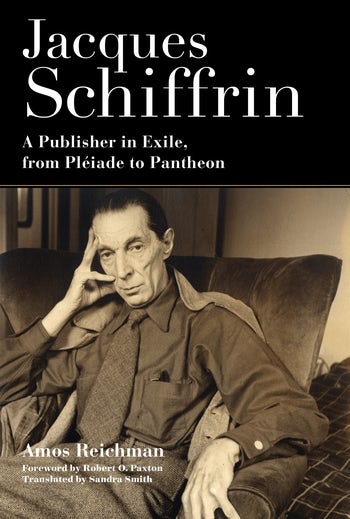University Press Roundup
Welcome to our weekly roundup of the best posts from the blogs of academic publishers! As always, if you particularly enjoy something or think that we missed an important post, please let us know in the comments.
We’ll get things started this week with an in-depth look at North Korea’s nuclear weapons program and capabilities, courtesy of Joseph M. Siracusa at the OUPblog. Siracusa asks, “what, then, is Pyongyang’s motivation for its nuclear and missile programs? Is it, as Victor Cha once asked, for swords, shields, or badges? In other words, are the programs intended to provide offensive weapons, defensive weapons, or symbols of status?”
President Obama recently gave the first State of the Union Address of his second term in office, and at the Chicago Blog, the blog of the University of Chicago Press, Sandra M. Gustafson takes a close look at this most recent SotUA. She pays particular attention to how this speech mirrors and differs from other recent Obama speeches, from his second inaugural address to his campaign speeches.
The JHU Press Blog continued their ongoing look at firearms in America this week with a guest post from Lawrence Rosenthal in which he looks at the constitutional passages pertaining to gun rights in America. Obviously the Second Amendment takes pride of place in his discussion, but he argues that we should take seriously the preamble as well, as it “represents a textual commitment to regulation found nowhere else in the Bill of Rights.”
Barack Obama’s path to the Presidency has been well documented over the last four years, but at the UNC Press Blog, Lisa Materson argues that women’s activism in Chicago in the late 19th and early 20th century played a crucial role in getting Obama into the White House.
Migration played a crucial role in the story that Materson tells, and at Beacon Broadside, David Bacon argues that immigration could play a crucial role in positive changes in the future, but only if current immigration policy changes. “We need an immigration policy based on human, civil and labor rights, which looks at the reasons why people come to the U.S., and how we can end the criminalization of their status and work.”
February is celebrated across the U.S. as Black History Month. At From the Square, the NYU Press blog, however, Dayo F. Gore claims that we need to rethink Black History Month altogether. He worries that the focus on African American leaders means that “the messy and complicated details of centuries of oppression and resistance, which I believe make African American experiences so imperative in the national narrative, rarely garner attention.”
Bayesian thought, based on Bayes’ Rule, has been hotly debated for centuries, since Presbyterian Reverend Thomas Bayes came up with the premise in the mid 1700s. This week, the Yale Press Log takes a look back at the complex history of Bayesian thinking, and discusses how “the theory symbolized how religion’s role in the scientific study of physical phenomena was gradually phased out.”
No is a Chilean film that’s been nominated for the Academy Awards Best Foreign Language film. At the University of California Press Blog, Mary Helen Spooner tells the story behind the film of the 1988 “one-man presidential plebiscite” in which the people of Chile voted “no” on the question of General Pinochet’s continued governance.
This week, the University of Minnesota Press Blog has a Q&A with Leigh Fondakowski, who has spent “spent three years traveling the U.S. to interview survivors of the Jonestown massacre, many of whom have never talked publicly about the tragedy.” Fondakowski wanted to elevate public awareness of the actual events of the massacre, and to get the general public past “the catch phrase “they drank the Kool-Aid.””
February 21 was the birthday of Tadd Dameron, a crucial and underappreciated figure in the history of jazz. At the University of Michigan Press Blog, Paul Combs has a post remembering Dameron, whose “large and influential body of work and inspired, both directly and indirectly, a great number of musicians, among them Miles Davis, Frank Foster, Benny Golson, Quincy Jones, Charlie Rouse, and Horace Silver.”
“Inspirational” can be a tricky compliment. At North Philly Notes, the blog of Temple University Press, Harilyn Rousso explains that being told she was “inspirational” for dealing with her cerebral palsy made her wonder why people “expected so little of me that even my most modest achievements could inspire [them].”
Pope Benedict XVI’s abdication continues to inspire thoughtful blog posts, the latest written by George E. Demacopoulos for the Penn Press Log. In his post, Demacopoulos looks at the Pope’s decision through the lens of St. Peter’s connection to the See of Rome.
This week is National Engineers Week. In honor of the occasion, the MIT Press blog has a Q&A with Matthew Wisnioski on what it means and will mean to be an engineer in the 21st century. Wisnioski is particularly interested in the role that engineering can and should play in politics and social justice.
Finally, we’ll wrap things up this week with a post on the University of Nebraska Press blog from UNP’s new marketing manager, Martyn Beeny. In his post, Beeny discusses the challenges of taking on a new job, and of cooking an exotic recipe–designed to be made in the Antarctic with penguin–with more reasonable ingredients.
Thanks again for reading this week’s roundup! Have a great weekend, and leave any thoughts in the comments!



